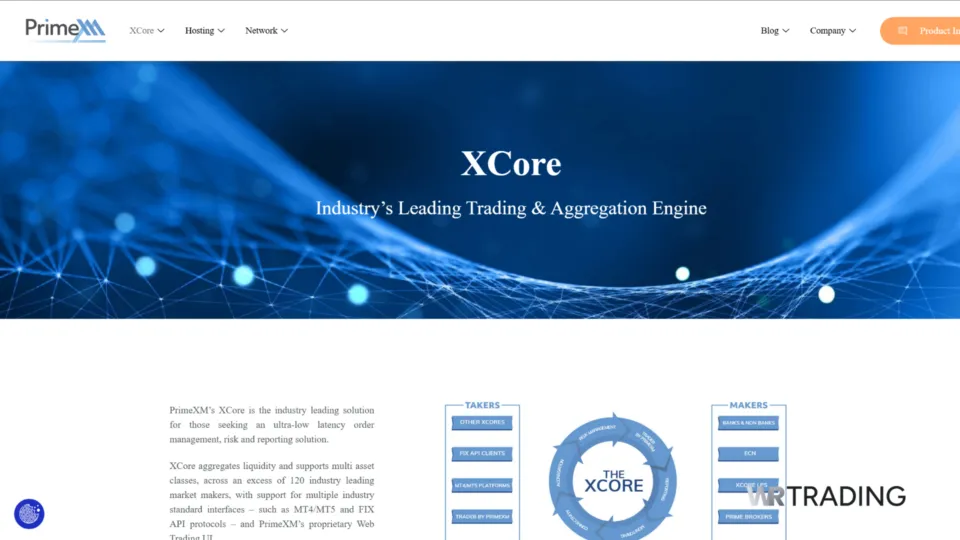A prime broker is a financial institution that provides services such as trade execution, settlement, financing, and custody on behalf of clients, including large institutional investors and hedge funds.
A prime broker essentially simplifies your trading experience by connecting you to liquidity and supporting your trading needs. Prime brokers are crucial for anyone involved in CFD or forex trading. So, we’ve reviewed prime brokers to help you navigate this critical aspect of trading.
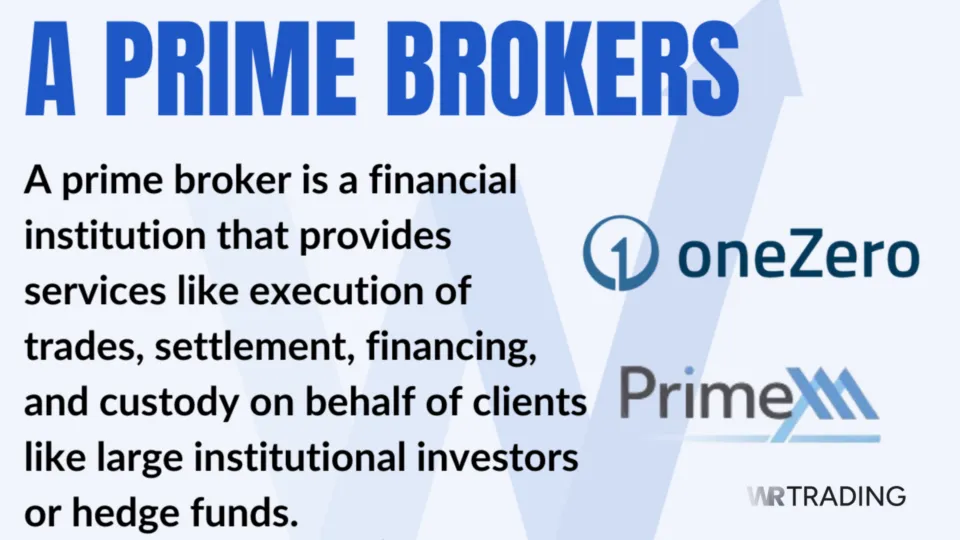
Key Facts About Prime Brokers
- Prime brokers support hedge funds by providing access to research, securing new investors, and enabling the borrowing of cash or securities.
- These services enable large institutions to outsource various investment tasks, allowing them to focus more on their investment strategies and goals.
- Each prime broker has its minimum account size requirements and fee structures for clients.
- Prime brokers often provide leverage to clients, allowing them to increase their market exposure and potentially enhance returns.
The Role of The Prime Broker in The CFD/Forex Industry
In the CFD/Forex industry, Prime brokers are the backbone of your trading experience, connecting you directly to the financial markets and ensuring access to a wide range of trading opportunities.
They aggregate liquidity from various sources and provide competitive pricing and swift execution of your trades. When you trade, the prime broker might execute your orders in the market (A-Book) or take the opposite side of the trade (B-Book).
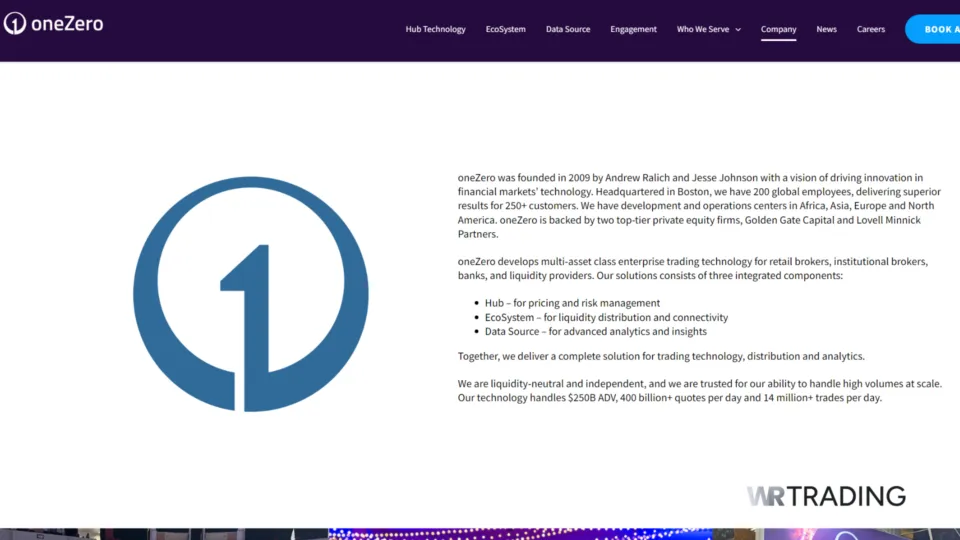
In an A-Book model, your trades are passed on to liquidity providers. On the other hand, in a B-Book setup, the broker retains the risk, which can influence outcomes during times of high volatility.
Understanding this dual role of prime brokers is essential for you as a trader. By choosing the right prime broker, you can benefit from enhanced trading conditions, better spreads, and access to advanced trading tools that improve your overall trading experience.
Other Offers and Services of a Prime Broker
Prime brokers do more than provide liquidity; they offer a range of services designed to support and enhance your trading experience. They include:
- Intermediary Between Key Counterparties
- Short Selling
- Streamlining
- Risk and Performance Analytics
- Risk Management Insights
Acting as an Intermediary Between Key Counterparties
Prime brokers serve as intermediaries between hedge funds and large institutional investors, including pension funds. They facilitate the borrowing of securities, such as stocks and bonds, enabling hedge funds to engage in short-selling activities. This allows hedge funds to sell borrowed securities and aim to repurchase them at a lower price later.
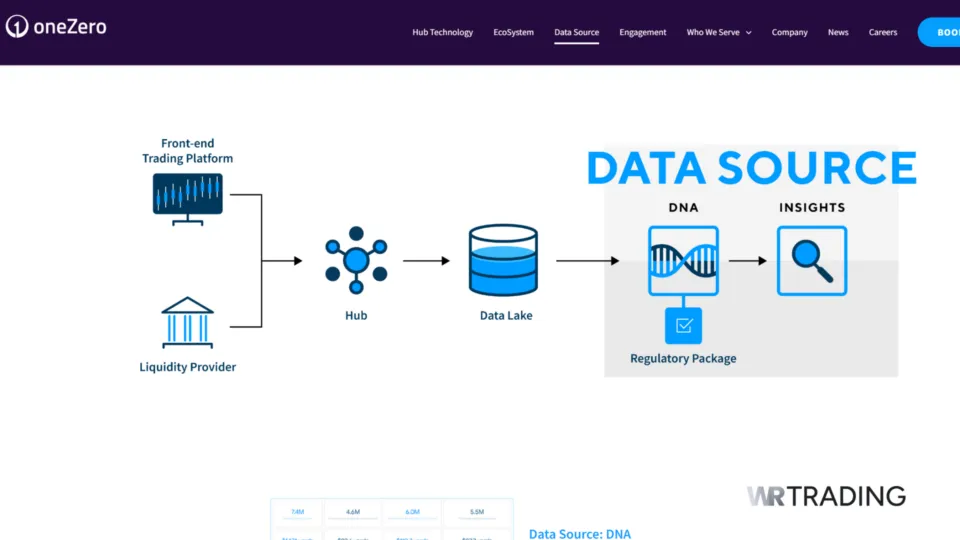
Prime brokers connect hedge funds with commercial banks, which provide large loans for margin financing. This enables hedge funds to leverage their positions and increase potential returns. The relationship between prime brokers, hedge funds, and commercial banks is crucial for hedge funds to operate on a larger scale than they could with their own capital.
Facilitating Large-Scale Short Selling
One of the key services provided by prime brokers is enabling large-scale short selling. This involves borrowing securities from large institutional investors and selling them on the market with the intention of repurchasing them at a lower price.
The ability to borrow stocks and bonds is crucial for hedge funds that use short selling as part of their investment strategy. Prime brokers play a pivotal role in this process by not only facilitating the borrowing of securities but ensuring that the transactions are executed smoothly and efficiently.
This service enables hedge funds to capitalise on market opportunities and potentially generate substantial profits.
Streamlining Trade Clearing and Settlement
Clearing and settling trades is another vital function of prime brokers. Hedge funds often hold accounts with multiple brokerage firms to execute trades in various markets. However, managing the clearing and settlement of these trades across different brokers can be complex and time-consuming. This is where prime brokers step in.
As the custodian of the hedge fund’s assets, the prime broker ensures that all trades are cleared and settled efficiently, reducing operational risk and streamlining the entire trading process.
Comprehensive Risk and Performance Analytics
Effective risk management is essential in the world of trading, and prime brokers excel in providing comprehensive risk and performance analytics. Many prime brokers partner with specialised risk management firms to deliver daily risk assessments and performance analyses to their hedge fund clients.
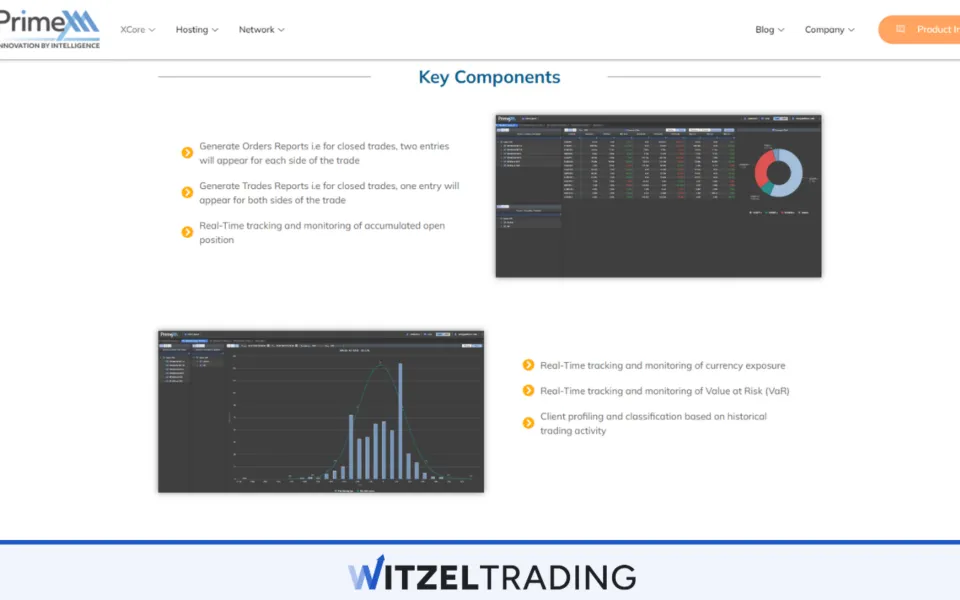
These analytics are crucial for hedge funds to monitor their exposure, identify potential risks, and make informed decisions. With access to detailed risk and performance data, hedge funds can adjust their strategies in real-time, ensuring they stay ahead of market trends and protect their investments.
Access to Derivatives Trading Desks and Risk Management Insights
Hedge funds that frequently trade derivative financial instruments benefit immensely from the access prime brokers provide to their derivatives trading desks. Prime brokers facilitate these complex transactions and offer valuable risk management insights based on their trading operations.
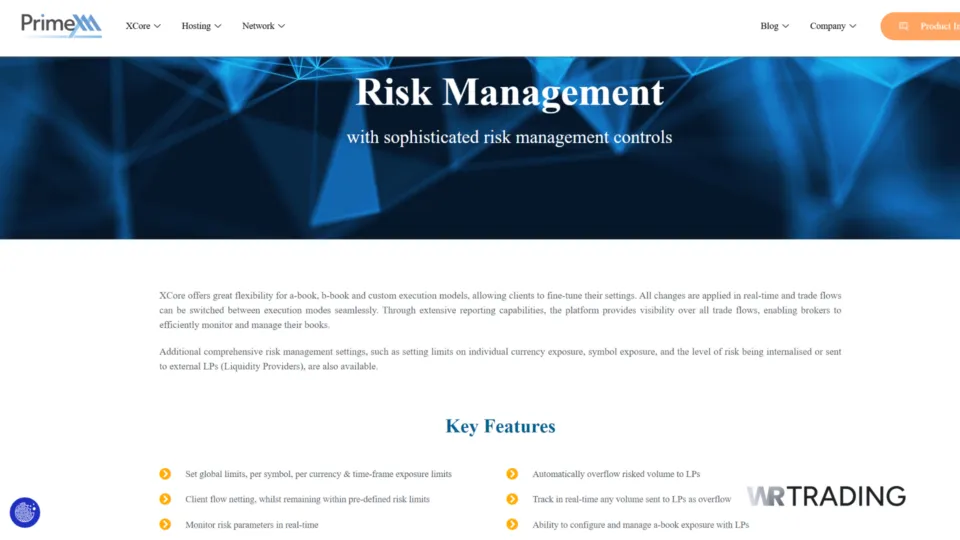
Example of Prime Brokerages
After our research, we’ve found two prime brokers that stand out for their reliability and services. These brokers provide the tools and support necessary for advanced trading, establishing them as trusted names in the industry. Here’s what makes them great choices:
PrimeXM XCore
XCore integrates with over 120 liquidity sources, and this wide range of connections allows clients to pick from many liquidity partners without technology restrictions.
By supporting a multi-tiered best bid/offer aggregation, XCore enables better spreads and superior execution. You can leverage various supported providers to create an optimal mix of multi-asset liquidity. Additionally, its smart order routing supports various routing rules that can be personalised for multiple clients, symbols, target LPs, and more.
XCore provides strong risk management and reporting tools. It offers real-time controls to manage trading risks and detailed reports on trading activities. Lastly, it gives a sophisticated art trading interface with flexible layouts, reporting, and real-time position tracking.
These features make PrimeXM’s XCore a powerful tool for handling large trading operations and improving performance in different trading scenarios.
OneZero
OneZero offers a pricing and risk management system that lets you manage multiple trade messages daily. They provide market access and a partner network advantage that enables buy-side and sell-side firms to come together and consume and distribute multi-class asset liquidity. You can leverage various partner services like data analysis, regulatory reporting, and post-trade without special integration.
Their advanced business intelligence tools provide deep insights into trading data. Besides storing your quotes and trade data, they let you track performance and optimise your strategies. Access to detailed analytics enables more informed trading decisions, enhancing overall performance.
Does Every Forex / CFD Broker Use a Prime Broker?
No, not every Forex or CFD Broker uses a prime broker, and whether they do often depends on the broker’s size, business model, and the services they provide.
Larger brokers, mainly those catering to institutional clients, often rely on prime brokers to access deep liquidity, offer competitive spreads, and manage the complexities of large-scale trading.
However, from our experience, smaller brokers or those focused on retail clients might not find prime brokers necessary. The costs associated with using a prime broker can be prohibitive for smaller operations, and some brokers prefer to manage liquidity and risk in-house or through more cost-effective alternatives.
Prime brokers provide essential services, such as risk management, leverage, and efficient trade clearing, making them valuable partners for brokers handling high volumes or offering sophisticated financial products.
How Does a Prime Broker Earn Money?
Prime brokers earn money through various revenue streams, each closely tied to the valuable services they provide to their clients. Here are each of the ways Prime brokers earn money:
- Commission and Fees
- Interest on Margin Loans
- Securities Lending
- Financing and Leverage
- Spread on Foreign Exchange Transactions
- Value-Added Services
Commission and Fees
We know that prime brokers charge commissions and fees for the extensive range of services they offer. Whether executing trades, clearing and settling transactions, or providing custodial services, every interaction contributes to the prime broker’s earnings.
These fees are essential for covering the costs of the sophisticated infrastructure and expertise that prime brokers provide to large institutional clients.
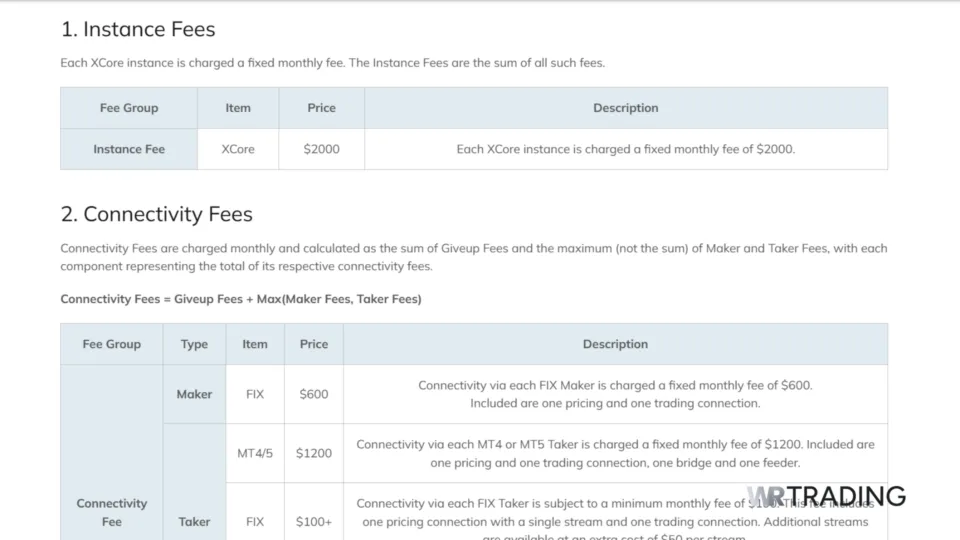
Interest on Margin Loans
From our experience, one of the primary ways prime brokers generate revenue is through the interest they charge on margin loans. When clients, such as hedge funds, borrow money to leverage their trading positions, prime brokers provide these loans and earn interest on the borrowed amounts.
This interest often represents a significant portion of their income, as it’s typically higher than the cost of the funds they borrow.
Securities Lending
Securities lending is another key revenue stream for prime brokers. When clients want to engage in short selling, they rely on prime brokers to lend them the necessary securities. In return, the prime broker charges a fee based on the demand for those securities and the loan length.
This service is crucial for hedge funds and other institutional investors who rely on short selling as part of their trading strategies.
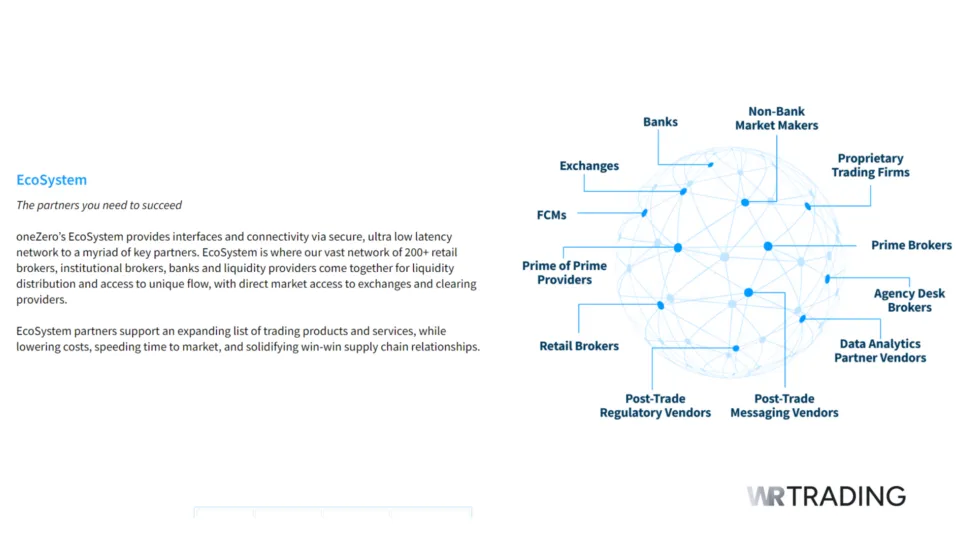
Financing and Leverage
We recognise that prime brokers earn money by providing financing and leverage to their clients. By allowing clients to trade with more capital than they have, prime brokers charge interest on the borrowed funds.
This facilitates more significant trades and adds to the prime broker’s profits through the interest and potentially higher spreads involved.
Spread on Foreign Exchange Transactions
In the forex market, prime brokers can earn through the spread of currency transactions. We’ve observed that when clients trade currencies, the prime broker buys and sells at slightly different rates, and the difference between these rates is where they profit. This spread becomes a significant source of income, especially in high-volume trades.
Value-Added Services
We see that prime brokers offer a range of value-added services, like risk management analytics, capital introduction, and access to exclusive research. These services, often tailored to meet each client’s unique needs, are accompanied by associated fees.
By offering these specialised services, prime brokers not only enhance their clients’ trading capabilities but also create additional revenue streams.
Conclusion
In this article, we’ve explored what prime brokers are, why they matter, and how they earn money by offering a wide range of services. We believe that having a clear understanding of prime brokers can significantly enhance your trading strategies and decision-making, whether you’re an individual trader or managing a brokerage.
Frequently Asked Questions:
Can Individual Retail Traders Access Prime Broker Services?
No, individual retail traders cannot access prime broker services. These services are designed for large institutional clients, hedge funds, and high-net-worth individuals, as they cater to their complex needs and large-scale operations. Retail traders typically use standard brokers that provide essential trading services, which are more suitable for their smaller trade volumes.
Do Prime Brokers Work With All Types of Financial Instruments?
Yes, prime brokers generally offer services across various financial instruments, including stocks, bonds, derivatives, and foreign exchange. They provide the necessary infrastructure and services to facilitate trading in multiple markets.
Is A Prime Broker The Same As A Regular Broker?
No, a prime broker offers a broader range of services than a regular broker. While a regular broker focuses on executing trades for individual clients, a prime broker provides comprehensive services like liquidity access, margin financing, and risk management to large institutional clients.
Do Prime Brokers Offer Services to All Hedge Funds?
Prime brokers generally provide services to hedge funds, but not every hedge fund qualifies. They often focus on larger, more established funds that meet specific criteria such as asset size, trading volume, or operational history. Smaller or newer hedge funds may face challenges accessing these specialised services.
